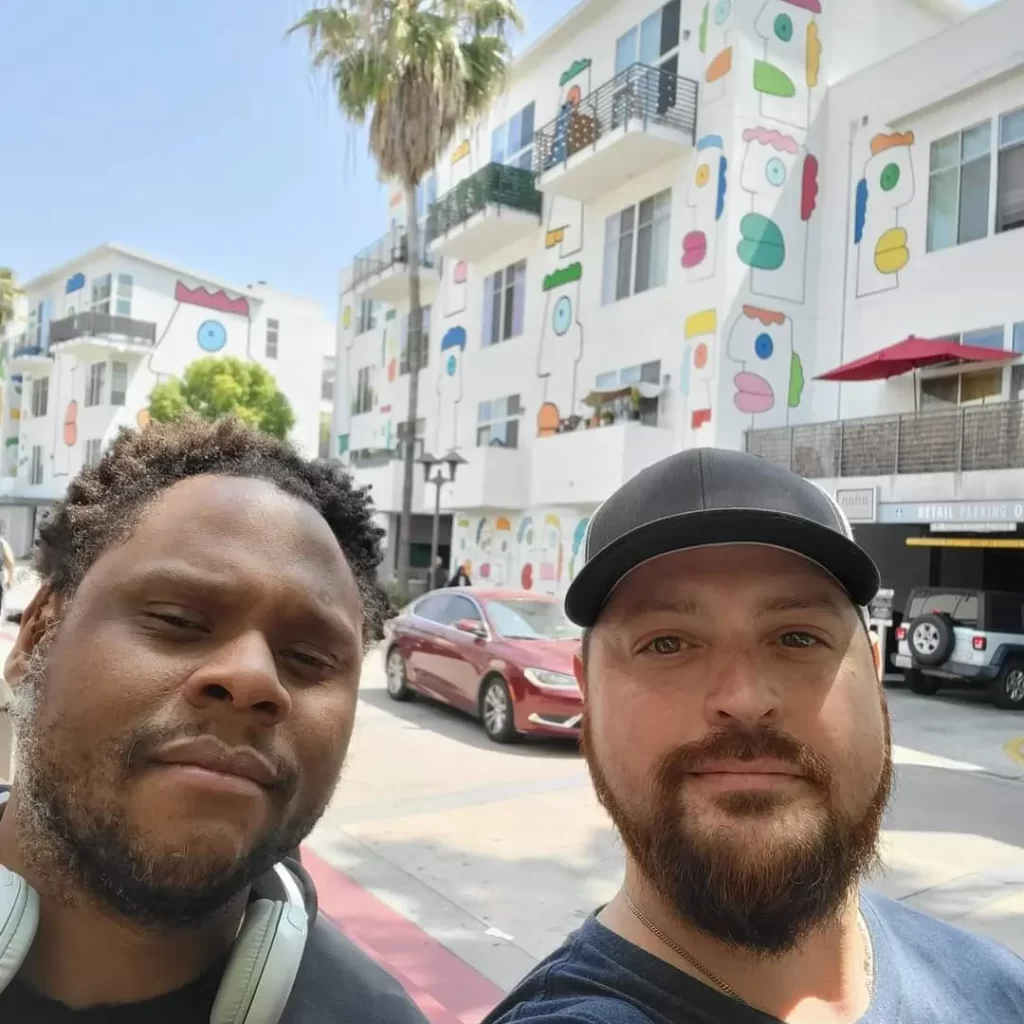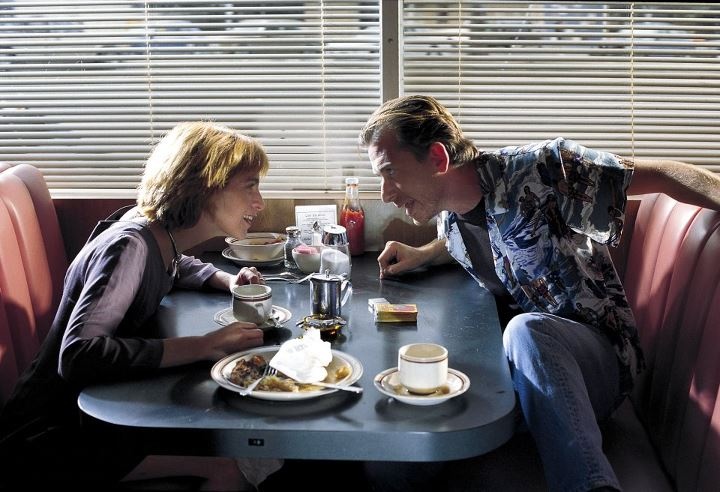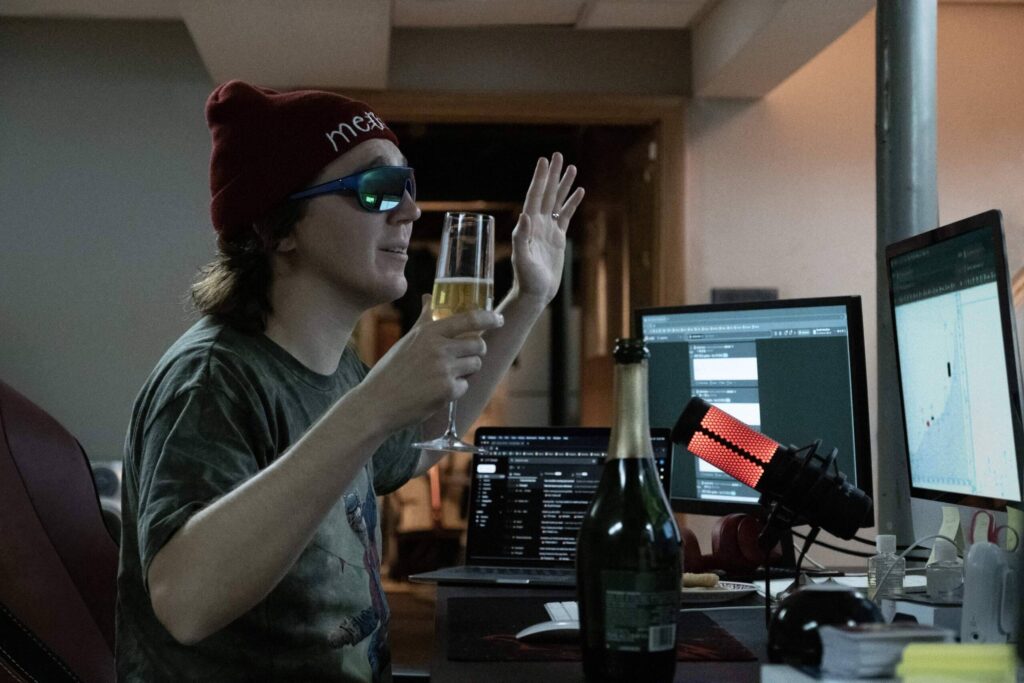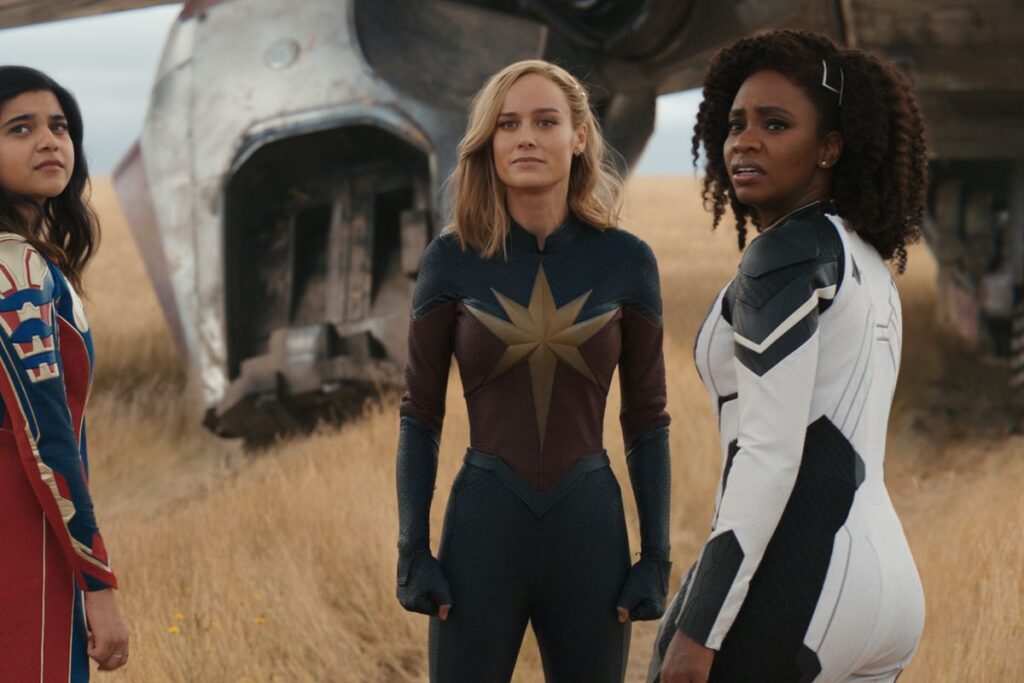Clementine script review with some added insight from the writer!
Genre: Thriller
Premise: (from Black List) Set in real time, a Colombian mother barely escapes a pawn shop shootout and goes on the run from her violent ex-husband, a terrifying mob boss, and a bloodthirsty hitwoman sent to collect an overdue debt, all while trying to keep her diabetic daughter safe.
About: It’s finally here! Boy, I sure do know how to draw out the suspense. Longtime Scriptshadow reader and fave commenter David L. Williams, a man who put his nose to the screenwriting grindstone and worked and worked and worked, completing screenplay after screenplay, finally had it all pay off last year when he made the Black List, earning a highly respectable 12 votes.
Writer: David L. Williams
Details: 91 pages
 Alexa Demi from Euphoria would kill this role! No pun intended!
Alexa Demi from Euphoria would kill this role! No pun intended!
Before we get to the review, which was posted in my newsletter (why aren’t you signed up for my newsletter: carsonreeves1@gmail.com), I wanted to share with you a quick discussion I had with the writer…
Carson: What’s happening with this script currently, David? Who’s going to play the lead role?
David: We have the actress (plus director and financiers). She isn’t well-known but she’s rising and FANTASTIC, and was the director’s first choice. They have it budgeted out to shoot in Miami and Colombia for $10M. The strikes obviously delayed m… everything haha. But they’re still aiming to shoot in or by summer.
Carson: Did you query agents with this script or another one? Is Clementine how you got repped?
David: So back in 2021 my best friend, Jason Gruich (Cop Cam), and I were both drunk one night and decided to burn cash on evaluations on the Black List *website*. Two days later, Clementine got a 9 out of 10 overall, plus a subsequent 8/10. I kind of hustled that: sent a few queries, told some industry people that I already knew (including reps/execs), and some reps reached out to me via the BL website, my email, and on Twitter (because it was popular on Twitter). I met Mitchell Bendersky at Gramercy Park. Could have gone somewhere bigger, but he’s the most amazing fit that it’s not even funny. He and I are best friends now.
 David on left. Jason Gruich (Cop Cam) on right.
David on left. Jason Gruich (Cop Cam) on right.
As for agents (Verve), I had a general with a studio exec and he sent that (plus another script he loved that I wrote) to a coordinator there and they flipped. My manager wanted me repped there too, but the exec beat him to it. Lol. Neither of us asked him to. A month later I had a meeting at Verve’s offices and walked out repped.
Carson: So your manager and agent got together and started sending it around to production houses and/or directors? Is that how the package came together?
David: So I was an Austin Film Fest semi-finalist in 2021 for a pilot and met a finance exec from CAA at a roundtable. I was the only person she reached out to after the fest, but she had initially passed on even reading Clementine and read something else instead (she liked that other concept more). But after I got a 9 on the BL website, she read Clementine and wanted to package it asap. I wasn’t repped with her, she just wanted to take it out. She and my manager took it out the first week of Jan 2022 and that Friday we got an offer for an option. So it actually got picked up BEFORE I officially got agents. My agents came in June, and got me a ton of pitch meetings and more generals. They also rep the company that optioned it. That CAA exec is now an exec at Beck/Woods.
Fun fact. We met our director because he read it off the official annual Black List. He’s Colombian and it really connected with him — he had his reps (ironically CAA) send a really emotional letter to the prod/co. He’s attached to a bunch of cool stuff but we sense that this is like his passion project. And we’re extremely lucky he came to us after we’d already met a bunch of directors.
Carson: You wrote a lot of scripts before Clementine. Why do you think Clementine was the script that broke you through? What was your mindset when writing Clementine compared to your mindset when you first started writing scripts?
David: Well, the idea hit me like a truck while I was reading a different script, and I started writing immediately, like within an hour. I think there are different ways to hook someone; outside of concept, it can also be presentation and intent. In this case, this isn’t a high concept, but there aren’t a lot of movies that take place real-time and won’t allow you to breathe, and for me and people I’ve met, that was an X-factor.
By the end of that day I had the first act written. The whole script was done in a week. No outline. Haha. What you read is actually the second draft, and it hasn’t changed since 2021. No one has wanted to change anything.
As for what’s different between this and other scripts of mine, while I’m not even sure if it’s my best script, I think it’s the least deniable, if that makes sense. Sometimes in movies like this I think it’s considered great when the protagonist doesn’t have a choice. We love to see what kind of choices characters make, but sometimes it’s more entertaining when the character is faced with “Do this your daughter dies. Period.” I think it has the most clarity and urgency which really does a lot here. I was constantly surprised as the story came to me and I think that comes through.
For example (spoiler) while writing the script, I had no intention of bringing Clementine back after she dies. I was prepared to make it Sicaria’s story. I think that’s what makes it feel so real. While writing it, I literally didn’t think she’d come back.
Carson: Any advice you’d give aspiring writers for getting representation or getting on the Official Black List?
David: When you reach a level where you’re consistently getting little to no notes, and people are flipping for it, send it everywhere that seems legit, as much as humanly possible. And when people inevitably want to meet you, being fun and pleasant go a loooong way. Those are the things that make people wanna be your friend and/or see you succeed: a great script written by a dope person.
Carson: Couldn’t agree more with that answer. Okay, so what’s next for you?
David: It’s a character-driven sci-fi/drama, vastly different from Clementine, called “Intergalactic.” After Orion’s Belt is destroyed in the night sky, an emotionally unstable teenager attempts to prove to a lonesome astronomer that the event was caused by his ability to move objects in outer space.
Carson: Well I’m rooting for you and I’m sure everyone else here is as well. Okay, on to the original review from the newsletter!
******************************
I’m not going to pretend like I haven’t been nervous to review this script. David’s such a cool positive guy that I got scared! I didn’t want to rain on his achievement with a bad review should I not enjoy Clementine.
But it’s almost the end of the year and I have to write up my Black List re-ranking post soon which meant I couldn’t avoid it any longer. I had to read Clementine and I had to hope, with all hope, that I loved it. Cause I want David to go far in this business.
We meet 25 year old Clementine as she robs a Pawn Shop with her buddy Disco, and another dude. What we’re going to find out soon is that Clementine owes a nasty guy named Martin 100 grand because she stole from him to get her daughter, Sandy, heart-saving surgery. Sandy is a diabetic and suffers from a lot of health issues as a result.
But the pawn shop robbery goes sideways and Disco and Jake are 86’d. Clementine gets away, but not with the money. It doesn’t take long for Martin to call her and tell her what she already knows. That was her last shot. Now she and her kid are dead meat.
Clementine races home to get Sandy before Martin does and barely beats out Martin’s head assassin, a ruthless scar-faced female killer named Sicaria. Clementine hurries Sandy off to an abandoned warehouse but you knew it wasn’t going to be long before Sicaria found her (big spoilers follow).
Clementine fights Sicaria with everything she’s got but Sicaria is strong and kills Clementine. That’s right. She kills her! Now, we stay with Sicaria, who decides to bring Sandy back to Martin. Afterward, she gets a strange call from her personal cleaner. The cleaner says there’s no female dead body at the warehouse.
Guess who’s coming to dinner, Sicaria. The second time around, Clementine wins. But her daughter is still with Martin. This means Clementine is going to have to go into the belly of the most well-guarded beast in all the city to get Sandy back. Luckily, she’s got the AK-47 Sicaria left behind to help her. Will she succeed? With this script, I can honestly tell you, you’ll never guess.

(Big spoilers follow)
So the scenario I was most afraid of was that the script was going to hover inside of that “not for me” “worth the read” middle ground and I would be put in this position of saying it was “worth the read” even though in my heart it was “wasn’t for me” and you guys would all pick up on it and you would say, “Carson, you’re just giving this a worth the read cause you know David and you wouldn’t give that score if it was a random writer.”
Well here’s some great news: WE DON’T NEED TO WORRY ABOUT THAT.
Cause this script was awesome.
I’m not just saying that. It was really freaking awesome. I’m talking, it will definitely finish in the Top 5 of my Black List Re-Ranking post.
The script is just freaking RELENTLESS.
Something I’m always telling writers is to make things as difficult as possible on your protagonist. Well, David decided that that wasn’t enough. He needed to multiply the words “hard as possible” by a billion.
I can’t remember the last time a script made its hero work so hard. Wow.
I mean, at one point, we kill her! How much harder on your hero does it get??
The opening is a bit overwritten. I didn’t like when David juiced up his prose to sort of break the fourth wall at times. But it was a heart-stopping opening sequence nonetheless. I fucking felt like I was IN THAT PAWN SHOP. Wow. And I’m swearing because it was that intense.
You know what this script made me think of? Remember that script, “Mother,” that went on to star J. Lo on Netflix? There were so many things wrong with that script. This script fixes all of that. This should’ve been the script they picked. Cause Clementine is Mother of the Century with what she has to go through.
A lot of times I’ll give an “impressive” and writers will ask me why this script got an impressive as opposed to other scripts. That answer is easy as pie with “Clementine.” Everything in this script moves like lightning and is as intense as an African safari with no jeeps. But two moments stuck out in particular.
The first is when Clementine is “killed.” I thought she was really dead. And kudos to David for not doing the age-old “psyche out” where she jumps back up at the last second and keeps fighting. No, David commits so hard to the death of the main character that we then follow Sicaria for the next 15 minutes! This made Clementine’s reemergence a gangster twist that blew the doors off my reading Tahoe.
So that was the first one.
The second one was the ending. The ending in this movie is freaking insane! Cause David stuck to that rule of “make things as hard on the hero as possible” and he made sure that, because it was the climax, he made it even harder.
I had no idea what was going to happen. I loved how Clementine grabbed Martin’s son. Because, usually, in any other script, this is a cheap move. But here, it makes total sense. You jacked my kid. I’m jacking yours. You made up these rules. Not me. So it worked perfectly.
But even beyond that, it added an extra variable to the ending where you’re not just asking, “Will Clementine and Sandy get away?” You’re wondering what’s going to happen to this other kid. In any other script, I would’ve known he was safe. But in this script, a woman tried to kill another child. And our main character died for a while! This is exactly where you want your reader. You want them having no idea what you’re going to do and that’s exactly where David had me.
So then, Clementine clears Martin’s home fence with her car, somehow, impossibly, getting past all his guards and him, AND THEN A COP STOPS HER!!! It’s like, “David! You’re killing me, man!” I so wanted her to escape but now this cop stops her. Martin’s son is trying to get out of the car. The cop is threatening to shoot anyone who gets out of the car. Martin’s men are coming from behind. They’re going to catch up to Clementine if she doesn’t find a way out of this cop situation. Then ANOTHER COP comes up and blocks her car….
I mean… dude. David. You win. You – freaking -win. That was some great writing there. This is going to be an awesome movie. I’m so proud of David. GOOD JOB!!!! And now you can read it too. I guarantee you’ll agree with me. :)
Script link: Clementine
[ ] What the hell did I just read?
[ ] wasn’t for me
[ ] worth the read
[x] impressive
[ ] genius
What I learned: When it comes to backstory/exposition, avoid your hero dishing out their own backstory. Instead, look to have other characters tell your character their backstory. I know that sounds backward, but I’m telling you, it works a million times better. So here, when Clementine first calls Martin to plead for mercy, she starts to talk about her daughter. But, instead of David having her finish, he has Martin give Clementine her own backstory. Clementine (crying): “My… daughter’s—“ Martin: I know your daughter’s sick to hell. I know about the divorce you can’t handle. Your papers. I have your shit memorized.” We get some quick backstory there about Clementine and we don’t realize it at all because it comes from another character. There were tons of other little screenwriting ninja star throws that hit their mark like this. David hasn’t just been reading Scriptshadow. He’s been taking notes!
Genre: Drama
Premise: After exhausting all financial options to save their dying daughter, Frank and Abby are forced into a final act of desperation: rob a local bank.
About: This was a script on last year’s Black List. The writer just completed his second feature film, called, “The Integrity of Joseph Chambers.” Here’s the logline for that one: A family man, hoping to prove his survivalist capabilities and manliness to his family, decides to irresponsibly head off into the woods and go deer hunting by himself. His first film was, “The Killing of Two Lovers” which got into Sundance and was acquired by NEON. It received a 93 Rotten Tomatoes score.
Writer: Robert Machoian
Details: 106 pages

Next Thursday, on the 11th, I’ll be dropping the 2022 Black List Re-Rankings, which means I gotta get through the last of these scripts.
In the spirit of what Scriptshadow does better than anyone else on the internet – give opinions on movie concepts – I’ll share with you why this one never got on my radar. The idea isn’t bad. Usually, in these bank robbery scripts, it’s a group of tough guys. I like that the writer *is* giving us a fresh angle, with the married couple being the robbers.
There’s just something kinda depressing about the set up. This really sad-sounding couple has to rob a bank to pay the bills for their sick daughter. Whenever I read the logline, I felt deflated. That’s not how you want your loglines to go over.
With that said, there are plenty of avenues to make a concept like this work. Just like any script, if we like the characters. If the writer does a good job of evoking sympathy. If the writer brings a unique voice to the proceedings – explores the idea in a slightly different tone than we’re used to seeing – then yes, it can be good.
That’s something all of us are going to be tasked with when we write our passion projects over the first half of 2024 (in the Scriptshadow One For Me One For Them Screenwriting Challenge – don’t worry, I’ll be putting up an official post for this by the end of the year). You’re going to have to turn what, initially, looks like a weak premise, into a great story.
So, let’s see if today’s writer was able to do that.
We begin in the grocery store, where 40-something Frank is staring at some strange woman’s a$$ who’s trying to grab a can of beans at the top of the shelf. The combination of this woman’s awkward plight and four random kids running around, bumping into things, causes the shelves to fall down. Frank makes a run for it with his 10 year old daughter and they check out the produce section.
Several minutes later, the woman comes over to Frank and we learn that they’re married. We also learn that those four kids are theirs. It’s quite the elaborate trip to the store. They all leave, where we then meet ANOTHER girl, 17 year old Ruby, who has some form of cancer and is waiting in the car.
Once home, they make a call, get news they don’t want, and confirm their 2-day “trip” to the city. This is framed to the kids as a vacation for mommy and daddy, but really, it’s so that Frank and Abby can rob a bank to pay for Ruby’s medical bills.
Off the two go, to whatever Utah’s version of a city is, and proceed to have wild explicit sex in their hotel room. The next day they meet up with a couple of friends at Denny’s who are going to act as lookouts for their robbery. This is followed by the robbery itself. Frank gets badly injured but they get the money. They make a run for it. I won’t spoil anything for you but let’s just say, things get gnarly in the last 20 pages. The End.
I want to start today’s analysis talking about scene reversals.
Scene reversals are when you start off a scene making the audience think one thing, then, at some point, there’s a reversal and we realize it’s the opposite (or different from what we were led to believe).
I remember the first time I became aware of this practice. It was in the opening scene of the 1994 movie, When A Man Loves A Woman, starring Meg Ryan in one of her only serious roles. The scene has Meg’s character at a bar by herself and then a man comes up and starts hitting on her. Over the course of the scene, she’s drawn in by him, and then, by the end of the scene, they’re making out. It’s then when we realize, they already knew each other. They were together. This was just a game.
That’s a scene reversal.
But here’s the thing about scene reversals. It’s tricky to pull them off in that opening scene because WE DON’T KNOW ANYTHING ABOUT ANYTHING YET. We don’t know who’s who. We don’t know what’s going on. We don’t know jack s**t. So if there’s any nuance at all to your scene reversal, there’s a good chance we won’t catch it.
The reason that the When A Man Loves a Woman opening scene works is because the scenario is so simple and familiar. Man hits on woman at bar. There isn’t any nuance to that scenario, so we get it immediately.
But here in I Love You Now And Forever, there’s a whole lot going on in the opening scene. And, therefore, when the writer tries to pull a scene reversal, we’re straight up confused. The first beat of the scene has Frank looking at a woman’s butt who’s up on the grocery store shelves looking for something, and saying this: “That a$$, that is a thing of beauty, Noni. Oh the things I could do with that. First the One-Eyed Pirate, then, The Terminator, then I’d climb inside and just take a na…”.
However, about five pages later, this woman finds Frank in another part of the store and calls him by name. They then start talking. And now we realize they know each other. They’re married. It was suuuuper confusing, especially when you consider that there were all these kids around who are presented as random, who we then learn are Frank and Abby’s kids! It’s what I call “unnecessarily confusing” writing. And so many beginner writers are guilty of it.
Because you have to consider the bang you’re getting for your potentially confusing buck. In When A Man Loves a Woman, the payoff is fun. It’s fun when you find out these two already know each other, so we leave the scene satisfied. With this scene, all we think is, “Why did you make it unnecessarily challenging for us to understand that these people are related?” What’s the payoff for that? Particularly when, if we lose the thread at any point, we’re lost and frustrated.
Clumsy or confusing or overly complicated first scenes are a huge pet peeve of mine because they start scripts off on the wrong foot. And I’m reading these mistakes CONSTANTLY. In the last 10 consultations I did, half of them had this problem: writers trying to be too clever by half with their openings and just making them confusing as a result. So watch out for this. Only do opening scene reversals if you’re a REALLY SEASONED WRITER and know how to navigate the pitfalls. Or if the scenario is super simple, like When A Man Loves a Woman.
So, does I Love You Now And Forever recover after that?

I’ll tell you this. You probably don’t want to waste 10% of your screenplay on a grocery store run. That’s valuable real estate that you’ve turned into a real-world errand. Unless there’s dramatic value to a scene, it should not be long. So that started the script off on a weak note.
A lot of the script feels like it’s spinning its wheels. The writer knew he had a bank robbery scene. He knew he had a getaway scene. And to his credit, both work well. But before that, it doesn’t feel like there’s a plan. For example, there’s an oddly specific sexual undercurrent to the screenplay so there’s this giant emphasis placed on the two getting jiggy with it the night before. And then they’re sort of enjoying the town the next day.
You need narratives that give your characters purposeful things to do throughout the movie. Not just during the big obvious set pieces.
It’s not necessarily a bad script. There’s a theme here about the struggle that the average American family is going through financially. There’s a theme about how crappy health care is. There’s a theme about family sticking together no matter what. And all of these are noble things to write about. But, in the end, all that matters is, “Are we entertained?” I was confused by the opening. I was bored by the second act. And then the end was pretty good. But this script needed much better plotting for it to do what it was trying to do.
[ ] What the hell did I just read?
[x] wasn’t for me
[ ] worth the read
[ ] impressive
[ ] genius
What I learned: Unless it’s a true story and you’re locked into it, avoid giant families. Giant families, in the screenwriting world, translate to: A TON OF CHARACTERS BOTH YOU AND WE HAVE TO KEEP TRACK OF. They’re more trouble than they’re worth. One child is fine. Two is fine. You only want to go three and above if you absolutely need to to tell your story. Otherwise, I promise you, they’ll get in the way.

It’s only 4:30pm and it’s already dark in my place??? What the F&%$ is going on????
Sorry, had to get that out.
I’m getting oh-so-close to my end-of-the-year movie rankings so I’ve been trying to catch up on everything I’ve missed. I don’t know what I was expecting when I watched Dumb Money because nobody was talking it up. Yet it was still getting decent reviews.
So I was as surprised as anyone when I was so pulled into it. If you don’t know anything about the film, it covers the “Gamestop” stock-buying fiasco from a couple of years ago, when a ton of personal investors got together to try and bankrupt a giant hedge fund that had put all of its money into “shorting” the dying company of Gamestop. In doing so, it left itself vulnerable on the .000001% chance that Gamestop didn’t go bankrupt.
This plucky little personal investor named Keith Gill, who not only foolishly buys 50,000 dollars worth of stock in Gamestop, but runs a Youtube channel where he explains his elaborate thought process for doing so, inspires a movement over on a Reddit site when a few of the bigger personal investors on the site latch onto his advice once they realize they can bankrupt one of the biggest hedge funds in the world.
This creates a revolution where people just keep buying more and more Gamestop stock, putting Citadel into bigger and bigger trouble. There’s this great little scene late in the screenplay where Keith Gill’s wife asks him, “How much did we make today?” “5 million,” Keith responds. “How much did we make yesterday?” “4 million,” Keith responds.
We then cut to Citadel employee Gabe Plotkin, whose wife asks him, “How much did we lose today?” “1 billion,” Gabe replies. “How much did we lose yesterday?” “1 billion,” Gabe replies. It perfectly wrapped up how insane this was.

But the main reason I liked this movie so much is because it creates this impossible internal dilemma for the main character, Keith. Remember, in the newsletter, when I talked about making things as hard as possible for the main character? But, in that example, I was referring to externally. For example, if your hero gets in a gunfight, have his gun lock up. How do you win a gunfight without a gun? That’s the sort of stuff you want to do to your main character.
But if you want to take that to a nuclear level, make things impossible on your hero INTERNALLY AS WELL. That’s what this movie does. Keith becomes the face of this movement. He bought 50,000 dollars worth of stock when the stock was 3 dollars. The stock gets up to 450 dollars. Which means Keith has holdings of over 50 million.
Now, if you were smart, you’d cash that out. At least some of it. But because Keith is the face of the movement and because he’s live-streaming every night, every move he makes is symbolic. If he sells even a tiny bit of his stock, he is admitting to everyone that he no longer believes in the movement. Which would cause everyone else to sell their stock and the whole house would crumble. So he’s under this enormous amount of pressure to not sell. And you could see it on him. This guy was scraping by his whole life and then, over the course of a month, he has 50 million dollars. BUT ONLY IF HE SELLS.
It was an impossible situation. And then, of course, the banks and hedge funds start conspiring to destroy the personal investors (really rich people call personal investors “dumb money,” cause it’s so easy to take their money), creating an impossible external challenge as well.
In addition to this, Dumb Money handles exposition like a champ. When you write this type of movie – one that requires so much education for the audience to understand what’s going on – it’s easy for the script to drown in that exposition. But Dumb Money spreads its key educational scenes out, so they’re never overbearing, and has fun with them, so that there’s a playful enjoyable aspect to hearing how all this works.
Oh, and as we always say here on Scriptshadow: Underdog movies always work. And this is a pretty big underdog story.
Now, is it the best movie or screenplay of the year? I don’t know. I’ve been letting the film marinate in my head for the last couple of days. It’s certainly more entertaining than those high-profile Oscar-thirsty yawners that the studios are releasing. I’m curious to hear why people haven’t been talking this up more. Am I alone on Dumb Money Mountain?
I also have something very sad to report. This weekend, the Marvels officially bowed out of the box office race, tapping out at 80 million dollars. To give you a little perspective on where this places the film, Solo: A Star Wars Story, the biggest box office disappointment in Star Wars history, made 84 million dollars on its opening weekend.
The Marvels represents, to me, the pinnacle of message-over-matter. And when I say “matter,” I mean, “that it matters” to the audience. It was written to drive a message. It was cast to drive a message. The director was hired to drive a message. At no point was a creative decision made with the goal of making the best movie they could possibly make.

At first I was like, “How could a company this big with this many smart people make such a mistake?” But it’s much more complicated than that. Disney made a series of decisions over four years that opened up the opportunity for the patients to run the asylum. Honestly, I don’t know if they can go backwards. That’s why they brought Bob Iger in – to fix all this. But Iger is learning that even in the quick four years since he left, the game has completely changed. If you go backwards, you get attacked. If you keep doing what you’re doing, you get attacked. It’s one of the more unenviable jobs in the world, I’d say. Well, I guess the 50 million dollar compensatory package at the end of each year helps.
The big positive story coming out of this weekend’s box office is the performance of the oddly titled, “Godzilla Minus One.” I didn’t know that titles could also be math problems. Can’t wait for “Aquaman Divided by 12” and “The Cosign Purple.” Anybody up for “Dune Part Two Multiplied by Nine?”

Godzilla Minus One is getting crazy good reviews. Which we’re not used to with Godzilla movies these days. I checked out the trailer to find out why and I can see why critics are going gaga. They set it right after World War 2, which is origin time for when Godzilla was born. So we’re going back to the beginning. It looks kinda cool but I don’t know if I understand the message. These people just endured this terrible war where 3 million of them were killed and now you’re going to have a monster show up and kill even more of them? How bout give them a chance to breathe, sheesh.
I will say that it looks a LOT BETTER than the latest U.S. Godzilla movie. That trailer was so poor that I actually thought it was fan-made. I’m still not convinced it isn’t. Maybe the Godzilla nerds can come in here and straighten me out. What’s going on with these two films? And why so much math?
Finally, please pay your respects in the comments section to The Marvels. I know we’re all hurting. But maybe, if we lean on each other, we can get through this.

It’s a scrumdiddlyumptious Logline Showdown this weekend. If this is your first time experiencing a Showdown, you check out the below loglines and then vote for your favorite one in the comments section. Whoever gets the most votes gets a script review next week. It’s also a great opportunity to tell writers what you like or dislike about their loglines so they can improve. So get to it! Here are November’s loglines…
Title: Down In Los Lunas
Genre: Horror
Logline: When a traveling book salesman discovers a slaughtered family and a lone survivor–a deaf teenage girl–at a remote farmhouse, together they must survive the night when the cult responsible for the murders returns to complete their sacrifice to an ancient deity.
Title: Jenkins and Watts: Paranormal Attorneys at Law
Genre: Comedy/Horror (30 minute pilot)
Logline: In a world where ghosts exist and have rights, Jenkins and Watts defend them against overzealous law enforcement, organized crime, and literal demons from hell…for fair market price.
Title: The Mentor
Genre: Thriller
Logline: An emotionally fragile executive failing to live up to his potential in life hires a mysterious personal development coach whose unorthodox, life-threatening tactics push him to the brink of death.
Title: Splashdown
Genre: Thriller
Logline: After their reentry goes wrong and they splashdown hundreds of miles off course, five astronauts and two space tourists must await rescue from shark-infested waters.
Title: A Chinese Vampire Story
Genre: Horror/Action
Logline: An elderly shop owner in San Francisco’s Chinatown sacrifices himself to become a goeng-si–a Chinese hopping vampire–so that he can get revenge against the gangsters terrorizing his neighborhood.
Title: 121.5
Genre: Thriller
Logline: A wanted man looking to flee the United States must put his trust in a radio operator to help him land a small plane safely after his flight instructor dies midway through his first lesson. Locke meets Buried
A HUGE announcement in this month’s newsletter. I’m hijacking your entire 2024. Also, out of left field, I read an amazing screenplay. Was not expecting that at all. So I reviewed that. There’s a Scriptshadow connection with the writer, by the way. I haven’t talked about Star Wars in a while, so I had to pass on some deep Star Wars thoughts. I also get into Back to the Future, Speed, and The Fugitive, all of which provide some screenwriting lessons for us. And then, of course, I can’t have a newsletter without some Sydney Sweeney. Who can? Oh, and there’s a great deal on script notes inside too!
If you want to join my newsletter, e-mail me at carsonreeves1@gmail.com
P.S. I’m posting November Logline Showdown tomorrow morning to give this post time to breathe.


